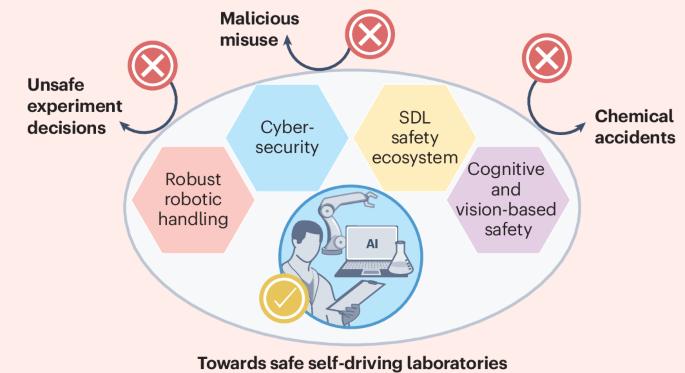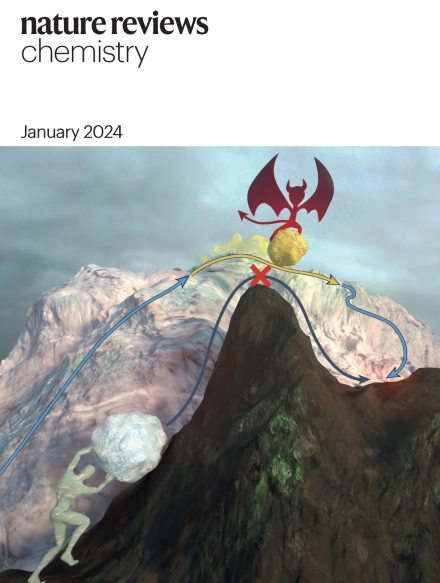Steering towards safe self-driving laboratories
IF 51.7
1区 化学
Q1 CHEMISTRY, MULTIDISCIPLINARY
引用次数: 0
Abstract
The past decade has witnessed remarkable advancements in autonomous systems, such as automobiles that are evolving from traditional vehicles to ones capable of navigating complex environments without human intervention. Similarly, the rise of self-driving laboratories (SDLs), which leverage robotics and artificial intelligence to accelerate discovery, is driving a paradigm shift in scientific research. As SDLs evolve to expand the scope of chemical processes that can be performed, it is essential to bring safety to the forefront to ensure that the necessary safeguards are in place to mitigate against potential accidents that range from near-misses to catastrophic failures. This Perspective examines the development trajectory of SDLs, juxtaposing their development with those of other autonomous technologies, with a particular focus on safety. We explore current safety status and concerns, identify opportunities for innovation to shape this rapidly evolving landscape, and reflect on the actions the SDL community can take moving forward. Self-driving laboratories promise accelerated discovery. As the scope of chemical processes and level of autonomy in these laboratories expand, a comprehensive safety framework is essential. We discuss here the safety development trajectory of SDLs, identifying opportunities for innovation to shape this rapidly evolving landscape.

转向安全的自动驾驶实验室。
在过去的十年里,自动驾驶系统取得了显著的进步,比如汽车正在从传统的汽车进化为能够在没有人为干预的情况下在复杂环境中行驶的汽车。同样,利用机器人和人工智能加速发现的自动驾驶实验室(sdl)的兴起,正在推动科学研究的范式转变。随着sdl的发展,可以执行的化学过程的范围不断扩大,必须将安全放在首位,以确保必要的保障措施到位,以减轻潜在的事故,从险些发生的事故到灾难性的故障。本文考察了sdl的发展轨迹,并将其与其他自动驾驶技术的发展进行了对比,并特别关注了安全性。我们探讨了当前的安全状况和问题,确定了创新的机会,以塑造这一快速发展的景观,并反思了SDL社区可以采取的行动。
本文章由计算机程序翻译,如有差异,请以英文原文为准。
求助全文
约1分钟内获得全文
求助全文
来源期刊

Nature reviews. Chemistry
Chemical Engineering-General Chemical Engineering
CiteScore
52.80
自引率
0.80%
发文量
88
期刊介绍:
Nature Reviews Chemistry is an online-only journal that publishes Reviews, Perspectives, and Comments on various disciplines within chemistry. The Reviews aim to offer balanced and objective analyses of selected topics, providing clear descriptions of relevant scientific literature. The content is designed to be accessible to recent graduates in any chemistry-related discipline while also offering insights for principal investigators and industry-based research scientists. Additionally, Reviews should provide the authors' perspectives on future directions and opinions regarding the major challenges faced by researchers in the field.
 求助内容:
求助内容: 应助结果提醒方式:
应助结果提醒方式:


